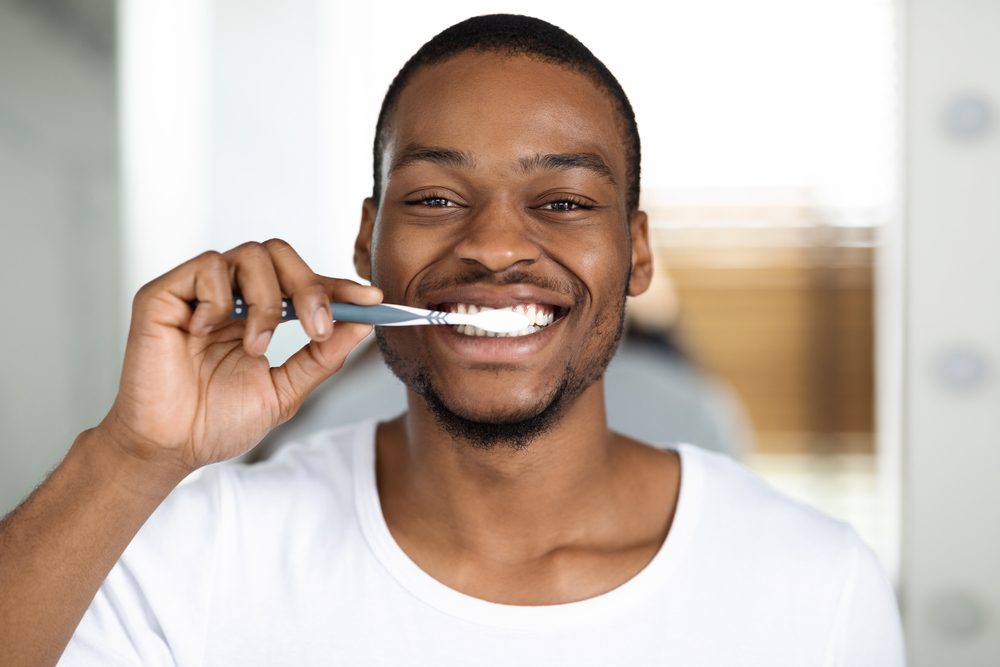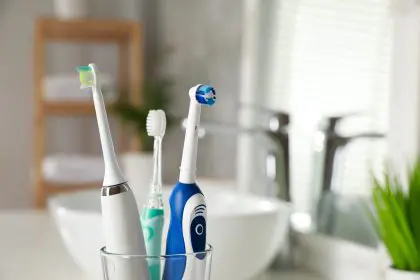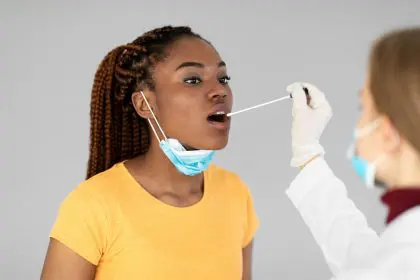Most people believe brushing immediately after meals promotes dental health, but dental experts warn this common practice could actually harm your teeth. Understanding the right timing for brushing proves crucial for maintaining strong, healthy teeth and protecting your enamel from damage.
The pH factor
After eating, your mouth’s pH levels drop significantly, creating an acidic environment that temporarily weakens tooth enamel. This acidic state can last anywhere from 20 to 40 minutes, depending on what you’ve consumed. During this vulnerable period, brushing can cause more harm than good, potentially leading to permanent enamel erosion and increased cavity risk.
Critical waiting periods
Dr. Marina Gonchar, an experienced orthodontist, emphasizes the importance of waiting 20-30 minutes after meals before brushing. This delay allows your saliva to naturally neutralize acids and begin the crucial process of remineralizing your enamel. The remineralization process helps strengthen teeth and repair minor damage from acid exposure.
Food and drink impacts
Different foods and beverages affect your mouth’s pH levels differently. Citrus fruits, sodas, and sports drinks create highly acidic conditions that require longer waiting periods. Even healthy foods like tomatoes and yogurt can temporarily increase mouth acidity. Understanding these effects helps you make informed decisions about brushing timing.
Special circumstances
Certain situations require extra caution when it comes to brushing timing. After vomiting, the presence of stomach acid makes immediate brushing especially dangerous. Instead, experts recommend rinsing with water or a baking soda solution before waiting to brush. The baking soda helps neutralize acids quickly, protecting your enamel during this vulnerable time.
Morning routine optimization
The debate over whether to brush before or after breakfast finally has a scientific answer. Dental professionals recommend brushing before breakfast for several reasons. First, it removes bacteria that accumulated overnight. Second, it creates a protective fluoride coating that helps defend against acidic breakfast foods. If you prefer brushing after breakfast, wait at least 30 minutes to protect your enamel.
Evening routine importance
Nighttime brushing proves particularly crucial for dental health. During sleep, saliva production decreases significantly, leaving teeth more vulnerable to bacterial growth and decay. A thorough evening brushing routine should include flossing, brushing for a full two minutes, and avoiding any food or drinks except water afterward.
Proper brushing techniques
Beyond timing, proper brushing technique plays a vital role in dental health. Use gentle, circular motions rather than aggressive back-and-forth scrubbing. Hold your brush at a 45-degree angle to clean along the gum line effectively. Pay special attention to hard-to-reach areas and your tongue.
Protection between brushings
When immediate brushing isn’t advisable, several strategies can help protect your teeth. Rinsing thoroughly with water helps wash away acids and food particles. Sugar-free gum stimulates saliva production, naturally neutralizing acids. Some dentists recommend keeping pH-neutral mouth rinses handy for after meals.
Common timing mistakes
Many people unknowingly damage their teeth through improper brushing timing. Common mistakes include brushing immediately after drinking coffee or wine, brushing right after swimming in chlorinated pools, and brushing too soon after consuming acidic fruits or juices.
Building better habits
Developing proper brushing habits takes time and awareness. Start by noting when you typically brush and adjust your schedule to allow for appropriate waiting periods. Consider setting phone reminders to help maintain proper timing between eating and brushing.
Long-term effects
Consistently brushing at the wrong times can lead to serious dental issues over time. Enamel erosion often occurs gradually, making it difficult to notice until significant damage has occurred. Protecting your enamel through proper timing helps prevent sensitivity, cavities, and other dental problems.
Special considerations
People with certain medical conditions or taking specific medications may need to adjust their brushing timing. Conditions that affect saliva production or increase acid reflux require special attention to dental care timing. Consult your dentist for personalized recommendations based on your specific situation.
Professional maintenance
Regular dental check-ups remain essential for maintaining optimal oral health. Professional cleanings help remove built-up tartar that brushing alone can’t address. Your dentist can also monitor your enamel health and suggest adjustments to your brushing routine if needed.
Understanding and implementing proper brushing timing significantly impacts your long-term dental health. While waiting to brush after eating might feel counterintuitive, this practice protects your enamel and promotes stronger, healthier teeth. Remember that small changes in your dental care routine can have lasting benefits for your oral health. Consult with your dental professional for personalized advice about optimizing your brushing schedule for maximum protection.

















